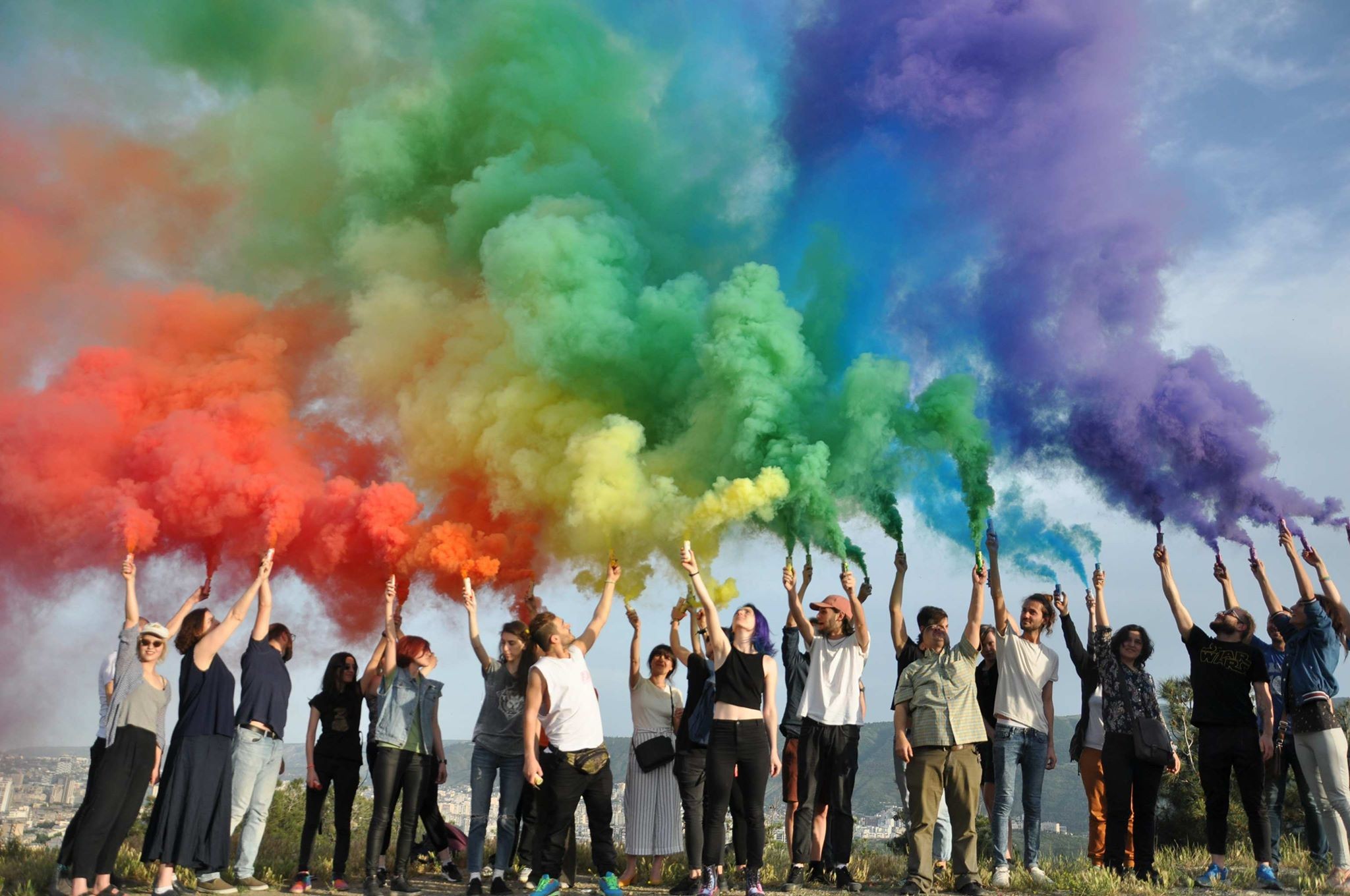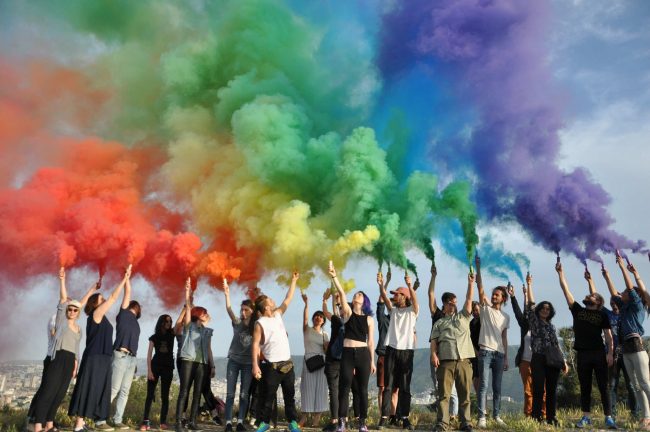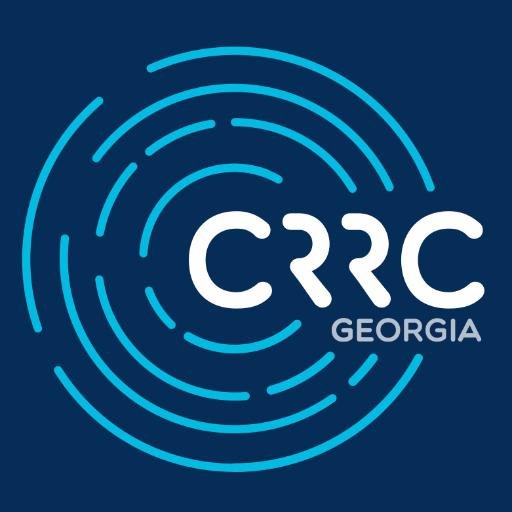

A new survey from CRRC-Georgia suggests there is a gap between the perception and reality of intolerance in Georgia.
Hate crime regularly makes the news in Georgia. The recent murder of Vitali Safarov, the harassment of Jehovah’s Witnesses, which has put the country in the European Court of Human Rights, and the 2013 riots on the International Day Against Homophobia all come to mind.
Yet, Georgians also pride themselves on examples of tolerance in the country’s history. This contradiction — pride in tolerance despite an apparent lack of it in many cases — is reflected in data CRRC-Georgia recently collected for the Council of Europe.
To understand attitudes towards different minority groups, the survey asked respondents whether they would approve of someone like them doing business with 24 different minority groups. Homosexuals, Jehovah’s Witnesses, and people of ethnicities not traditionally associated with Europe or the Caucasus were generally less approved of than peoples from Europe and the Caucasus.
People with disabilities were the most approved of minority group.
The groups people approve of least were also the groups the public thinks are most likely to be the victims of hate crime and the targets of hate speech.
When asked how often specific groups are the victims of hate crime and the target of hate speech, homosexuals and Jehovah’s Witnesses topped the list. When asked, who do you think is the target of hate speech most often in Georgia, LGBT people were named more often than any other group. The same is true of hate crime.
While these perceptions likely reflect the situation surrounding hate crime and hate speech to a reasonable degree, they are also likely mistaken to a certain extent.
For example, the vast majority of the public (91%) reports positive attitudes towards people with disabilities. In line with this pattern, only 2% of the public reported that people with disabilities are often the targets of hate speech and 2% the victims of hate crime.
Yet, as a person with a disability interviewed within the study stated, ‘Hate speech is part of our everyday life. Ingrained. Firmly established.’
It is not possible to generalise from a single interview, yet a gap between minority and majority perspectives on the challenges minorities face are not present only when it comes to people with disabilities.
The survey asked what the most significant issues a variety of groups faced were. While 41% of men reported that women faced no issues 28% of women did. 29% of ethnic Georgians reported that ethnic minorities faced no issues compared with 10% of ethnic Armenians and 12% of ethnic Azeris. 44% of Orthodox Christians reported that religious minorities faced no issues compared with 17% of Muslims and 20% of non-Orthodox Christians.
How the question was asked is important here. Respondents were provided with a list of potential responses and allowed to name other issues. However, that they face no issues was not part of that list, meaning that people actively reported the above groups face no significant issues rather than selecting one of the options from the list. If they face no issues was part of the list, a larger share of the public likely would have selected the option.
There are many plausible causes of the gap between minority and majority perceptions. A lack of contact between groups is one potential source. While this survey did not ask about contact with different minority groups, previous surveys show that those who are in touch with minorities often have more positive attitudes towards them (e.g. with LGBT people and with migrants).
A second potential cause is the portrayal of minorities in the media, which frequently contains hate speech.
No matter the precise reasons for intolerance in Georgia, these potential causes also suggest potential solutions.
First, increasing contact between minority and majority groups has the potential to decrease the animus people express towards minorities. Second, the media could remove hate speech from its discourse. Further, they could take the positive step of providing more detailed coverage of the problems minorities face in Georgia, thus directly informing the public.
Finally, highlighting the contradiction between Georgians’ pride in tolerance and the hate crime which takes place in Georgia all too often has the potential to encourage the public to question their own views.
 Dustin Gilbreath is the Deputy Research Director of CRRC-Georgia. The views presented in this article do not necessarily represent the views of CRRC-Georgia. The views presented in this article do not represent the views of the Council of Europe or any related entity.
Dustin Gilbreath is the Deputy Research Director of CRRC-Georgia. The views presented in this article do not necessarily represent the views of CRRC-Georgia. The views presented in this article do not represent the views of the Council of Europe or any related entity.
The data used in this article are available here.








